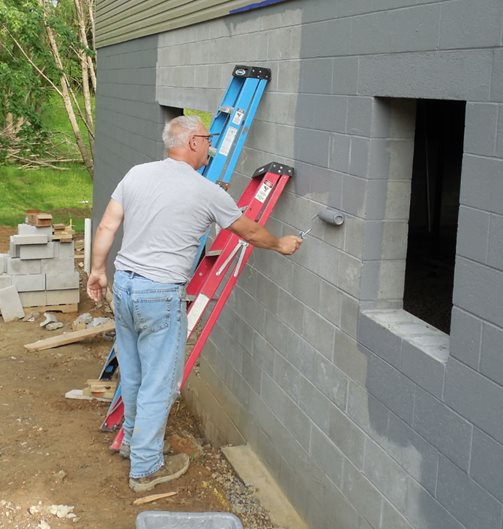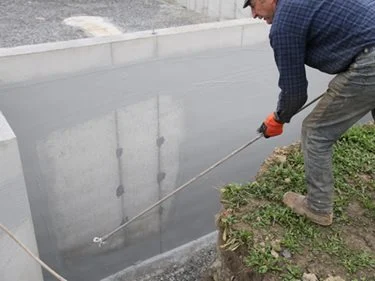CEMENTITIOUS WATERPROOFING
There are many below-grade waterproofing products on the market. Most manufacturers require you to become a certified applicator before they will guarantee an installation. If you're just going to do occasional waterproofing, I suggest you choose one product, get certified by the manufacturer, and learn all about that one product. Eventually you'll get good at applying it and be able to work quickly and safely. Different products can have very different characteristics, so only specialty waterproofing contractors should try working with multiple products.
Because there are so many materials on the market, any waterproofing job should begin with a careful review of the manufacturer's literature, maybe a phone call to a technical service representative, and possibly even a site visit by a field representative.



